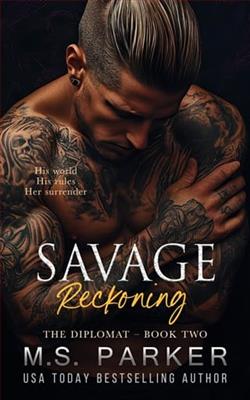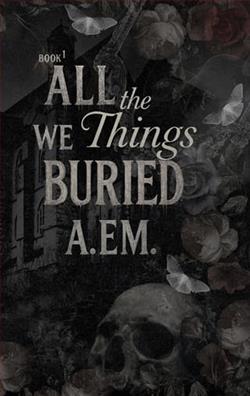Page 20 of Even in the Dark
“You hear about the showdown between Trev and the new kid?” Gavin asks me a few minutes later. He waited for me by the doors to the dining hall.
“I was there, yeah,” I say evenly.
“Dude is creepy.”
We head for the food line. Gavin continues, “He didn’t say one word in homeroom this morning. Then he totally ignored a couple girls who tried talking to him after.”
“Maybe he had nothing to say.”
“Are you kidding me right now?” Gavin scoffs. “He totally ignored them. Freakin’snubbedVictoria Ledworth and Maddie Jarvik when they were practically drooling over him.”
This is not a conversation I want to be having right now. I have my own issues to battle with Dylan Braun; the last thing I want to do over lunch is analyze other people’s grievances or opinions about his arrival on the scene. “Maybe he doesn’t like being drooled over,” I toss dismissively.
“Whatever. I heard he never even went to school before… Shit, maybe he doesn’t even know how to read. Or write and stuff.”
“He knows how to read and write,” I shoot back, almost defensively. I’m not sure why I say it, since I have no idea if it’s true or not.
He must, though, if it’s only three classes he’s got a private tutor for. Still, I’m not sure why I’m suddenly sticking up for him. I don’t even like the guy. And being nice doesn’t mean I have to go out of my way to defend him over stupid little stuff like this.
Gavin grabs two trays. “You want some pasta?”
My gaze catches on a tall blond figure over Gavin’s right shoulder. The subject of every conversation in the room right now is busy piling so much food on his tray, it’s clear all the attention has not affected his appetite. He turns, making a beeline for an empty table.
To sit alone.
Exactly like I warned him not to.
“Scarlett?” Gavin prompts. “You even listening? You want pasta?”
I nod, tearing my eyes away. “Yeah, sounds good.”
But as we cross the dining hall, I can’t resist another glance in Dylan’s direction. Six junior girls crowd around him now, vying for his attention. He seems utterly oblivious, raising his glass of cranberry juice to his lips. He glances up, meeting my stare, his eyes all discerning and sullen and tarnished copper. And I’m not sure how I feel that these are the first qualities I thought of, when they’re also tinted with a silent warning to stay the hell away. To not engage or trust or under-estimate. Borderline angry.
I’m distracted throughout lunch, surrounded by Gavin and all the usual suspects, my thoughts consumed by the boy who so clearly wants to remain invisible, yet is anything but. He eats quickly, and after less than ten minutes, tips up his glass and pours the last of the cranberry juice down his thinly scarred throat, then picks up his tray and carries it over to the tray-drop station. He grabs an apple from the basket next to the tall racks and his eyes meet mine again, just briefly, as he takes a bite, then turns and saunters back through the door and off to do God knows what for the thirty-five minutes still left before our first afternoon class. Lone Wolf on the prowl.
Chapter Eight
INITIAL SESSION NOTES
Patient: Dylan Braun
Treating therapist: Dr. Stuart Morley
I spoke with Dr. Karen Shields, lead therapist who worked with Dylan during the three-month period he was placed in full-time care at Clive House Psychiatric Residential Treatment Facility (state of California). Shields’ observations are in line with my initial diagnosis of C-PTSD (Complex Post Traumatic Stress Disorder). Mainly:
1) Dylan’s exposure to multiple traumatic events over an extended period.
2) The challenges Dylan appears to exhibit in forming healthy relationships (issues with trust and intimacy). Particularly concerning is his ambivalence/mistrust of women, ingrained inhim by his kidnapper (Eli), and his extreme delusional beliefs about women being conniving, sexually predatory, and the root of all evil.
3) Some difficulty recalling important aspects of certain traumatic events (mainly, the murders he witnessed as a child and possibly as a teen)
4) Coping mechanisms and survival strategies Dylan has developed that were adaptive in the traumatic environment of his life with Eli (his kidnapper), but that are mostly maladaptive in his current relatively “normal” life.
5) A fragmented/distorted sense of self
6) Dissociative symptoms—particularly moments of feeling detached from his body and/or environment
7) Dylan’s difficulty managing and regulating emotions. Particularly concerning are his intense and unpredictable emotional responses, most notably the jarring contrast between his out-of-control rage when he first learned of his kidnapping and his mother’s murder—compared to the closed off, withdrawn behaviors he’s exhibited more recently.















